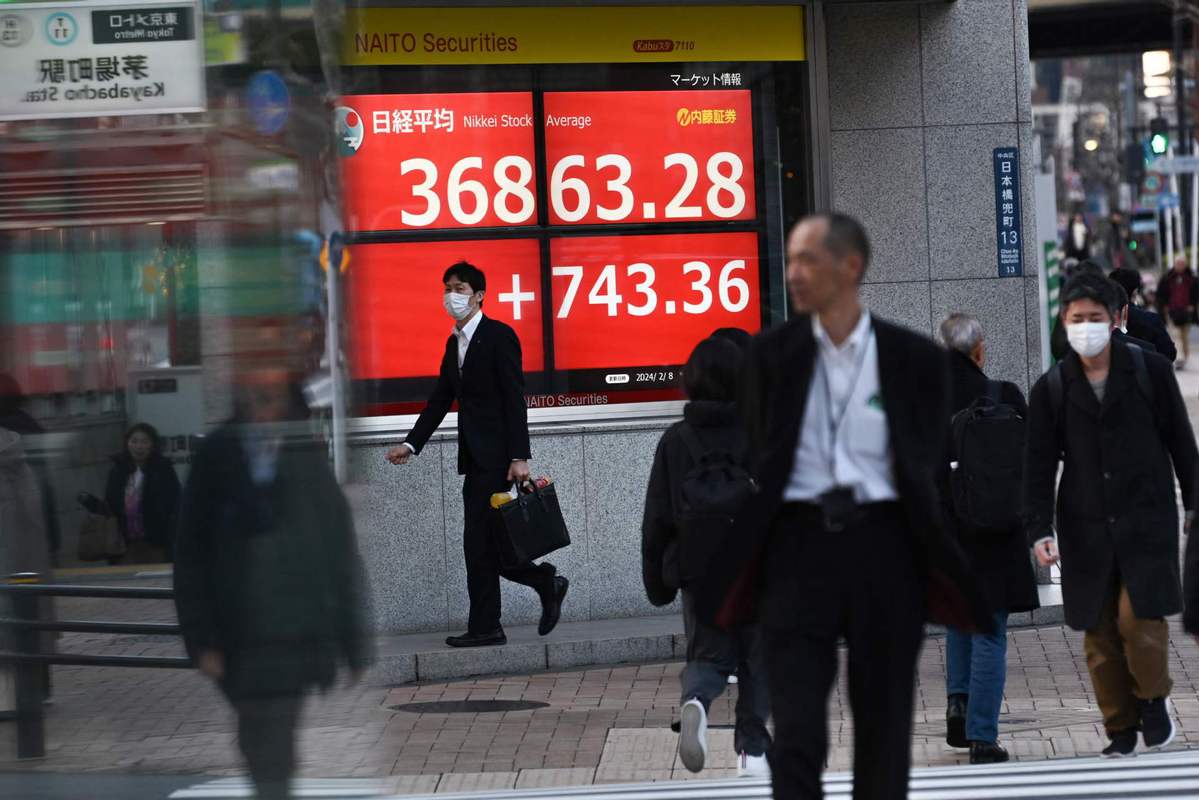Tokyo shares plunge on tariff worries
By Jiang Xueqing in Tokyo and Hou Junjie in Beijing | chinadaily.com.cn | Updated: 2025-03-31 19:07

Tokyo's benchmark stock index tumbled on Monday amid concerns that additional auto tariffs by the Trump administration could hurt the US economy.
The Nikkei Stock Average extended its losing streak for a third consecutive day on the Tokyo Stock Exchange, closing at 35,617 yen ($239), down 1,502 yen, or 4 percent, from the previous weekend. This marks its lowest level since early August 2024.
Automakers and chip-related stocks led the declines, as Japanese investors worried that new tariffs on US auto imports could dampen private consumption once implemented.
Investors also remain on edge over the potential global economic impact of the "reciprocal tariffs" that US President Donald Trump is set to impose later this week, according to public broadcaster NHK.
The market's broad-based sell-off followed a sharp drop in major US stock indices on Friday, driven by fears of stagflation — a combination of rising inflation and economic stagnation. A wave of futures selling and the impact of fiscal year-end factors further accelerated the downturn, The Nikkei reported.
Market sources told The Nikkei that the slide was triggered by foreign investors offloading Nikkei 225 futures from the morning, setting off a cascading sell-off. This downward momentum was mirrored in actual stock transactions as well.
As a result, nearly all stocks in the Nikkei 225 fell. High-priced tech stocks suffered the steepest losses, with Tokyo Electron at one point plunging 7 percent from the previous weekend, reaching its lowest level since November 2023.
The sell-off was initially triggered by Friday's release of the US Personal Consumption Expenditures price index for February. The core index, which excludes energy and food, rose 2.8 percent year-on-year, surpassing both market expectations and the previous month's figure, signaling persistent inflationary pressures in the United States.
With personal consumption accounting for 70 percent of US GDP, the weakening of this indicator sent investor sentiment into a sharply pessimistic mode. In Tokyo on Monday, concerns emerged that Japan's economy has historically struggled to remain unscathed when the US economy falters, The Nikkei reported.
Adding to the market's woes was a fiscal year-end "supply-demand valley". A notable absence among buyers was corporate share buybacks. According to guidelines from the Japan Exchange Regulation, stock purchases during the last five trading days of a quarter face heightened scrutiny. To avoid potential violations of market manipulation regulations, companies typically refrain from buybacks during this "blackout period".
The combination of worsening investor sentiment and a lack of buying support contributed to Monday's sharp decline, according to securities industry professionals.
Looking ahead, key US economic data will be released this week, including the Institute for Supply Management Manufacturing Purchasing Managers' Index for March and the US employment situation for March. If these figures disappoint, risk-averse selling could intensify. Additionally, the detailed announcement of Trump's "reciprocal tariffs" policy, expected on Wednesday, is adding further uncertainty to the market, The Nikkei reported.
























